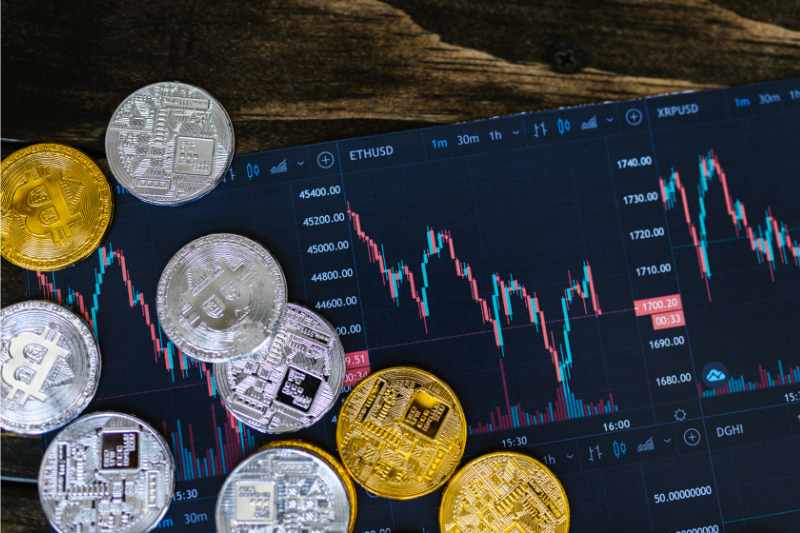
Disclaimer: This content is for informational purposes only, you should not construe any such information as legal, tax, investment, financial, or other advice. Nothing contained on our site constitutes a solicitation, recommendation, endorsement, or offer by ButterflyMX or any third-party service provider. ButterflyMX is not a financial adviser. You should always seek independent legal, financial, taxation, or other advice from a licensed professional.
Unconventional investment strategies rule the digital real estate market. Tokenized real estate is no exception. Similar to investing in NFTs and cryptocurrency, tokenized real estate is a byproduct of recent times. It’s also not as overwhelming as it might seem.
In this guide, we’ll define what tokenized real estate is. Next, we’ll go over how a physical property becomes tokenized. Finally, we’ll provide a few tips on how you can invest in tokenized property.
This post covers:
- What is tokenized real estate?
- How do you tokenize real property?
- The pros and cons of tokenized real estate
- 4 tips for investing in tokenized real estate
What is tokenized real estate?
Tokenized real estate is when the value of a real-world property is converted into a form of cryptocurrency that is stored on a blockchain. This enables an investor to digitally own the property or a portion of the property. As a result, multiple investors can own parts of a property by purchasing tokenized real estate crypto.
Investing in tokenized property is similar to investing in a REIT (real estate investment trust). In a REIT, investors put forward money to support a property and, in turn, receive a portion of the profits.
Is real estate tokenization legal?
Real estate tokenization is legal. However, as blockchain usage grows, so do the number of scams and theft.
So, just like in the physical world, investors need to do their homework on a property before investing in it. There’s nothing stopping a structurally unsound or clearly non-profitable property from being sold. If there is clear and evident fraud, this is illegal, but there are a lot of grey areas that can lead to investors being ripped off.

Is tokenization the future of real estate?
Buying tokenized property is an innovative investing strategy, but no, it’s not the future of real estate. At least, not in the immediate future.
The original real estate market is always going to overwhelmingly outnumber and outcompete digital real estate. This is mainly because, for most of the population, the physical real estate market is easy to understand and invest in.
However, investing in tokenized property will surely grow more popular over time. Like NFTs and cryptocurrency in general, the sustainability of tokenized real estate in its current form is questionable. But that might change in the future.
How do you tokenize real property?
The tokenization of real estate using blockchain technology is as simple as breaking down the value of a property into fractions and digitalizing those portions into cryptocurrency. In order to break the value of a property down into portions, a token called ERC-721 is used. This particular token calculates the division of a property’s value and applies it to the new token(s) that an investor will then own.
How much real estate is tokenized?
The amount of real estate that is tokenized is much less than 1% of the current real estate market. However, this doesn’t mean you won’t find plenty of investment opportunities if you want to buy tokenized real estate.
The pros & cons of tokenized real estate
Tokenized property can seem like a divisive investing practice. Millennials and younger investors are open to it, while more experienced investors are overwhelmingly skeptical. As you’ll see below, the benefits and risks of investing in tokenized property are varied.
Pros:
- Once established, investing in newer properties can be as easy as logging online and purchasing
- It’s easy to be eligible to invest in digital real estate
- Faster liquidity on investment
- Few transactional costs
Cons:
- There are a lot of scams
- Very few properties are for sale as tokenized
- There is very little regulation
- The practice of tokenized investing is still new, and the future is uncertain
- Taxes for cryptocurrencies aren’t clearly defined
- Security licensing to get real estate tokenization projects off the ground is complex

4 tips for investing in tokenized real estate
Investing in tokenized real estate is relatively easy. Our guide below will offer a few tips on how to make your investing process a smooth one.
You should do the following:
1. Choose a platform
There’s no single best tokenization platform. Tokenized real estate companies can be found on every platform. Many tokenization platforms feature tokenized investments outside of the real estate market.
With that being said, one of the most popular real estate tokenization platforms is called Honeybrick. Because it’s popular, this means you’re likely to encounter several tokenized properties to choose from.
Remember: Popularity can change seemingly overnight. When investing in digital real estate, always stay current on which platforms are seeing the most traffic.
2. Gather capital
When investing in digital real estate, It’s important to organize your funds before buying crypto. You need all of your investment capital liquid and capable of being instantaneously transferred into crypto. Don’t complete this step out of order and choose a property without having your financial assets in order.
3. Pick a property type
A lot of the principles that apply to investing in real-world real estate also apply to digital and tokenized forms of real estate. When choosing a property to invest in, you want to pay attention to what type of property it is and how likely it is to make a profit. You should also be aware of the potential risks of each property type.
Common real estate properties that can be tokenized include:
- Multifamily buildings
- Commercial office properties
- Undeveloped land
- Storage units
Discover the top 5 multifamily design trends:
4. Do your research before committing
We’ve said it previously, and we’ll say it again: Be wary of scams.
So, how can you avoid scams?
Here are some tips:
- Read every word of the terms and conditions that you will agree to.
- See what real-world information you can find out about the property that you’re investing in.
- Find out who the real estate operator (the owner of the property) is and what their history is like. Often a shady operator will have a checkered past.
Takeaways
- Tokenized real estate is any real-world property whose value has been converted into crypto tokens.
- To invest in tokenized real estate, an investor purchases crypto that represents a financial percentage of a property.
- When investing, you should choose a platform, gather your capital, pick a property, and be wary of scams.






